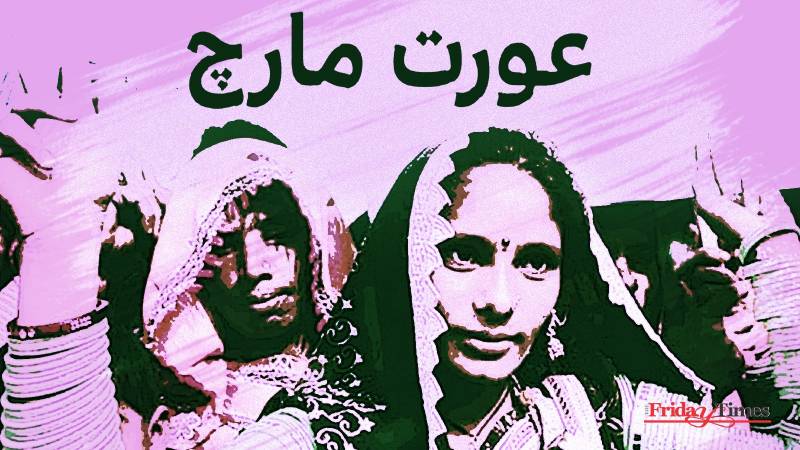
International Women Day is celebrated on March 8 every year. The day has a specific background of labour movement and at first it was called International Working Women Day. The theme for Women Day in 2024 is Invest in Women: Accelerate Progress”. The newly formed Punjab Government under the leadership of first female premier of the Province seems determined to combat violence against women. In this connection, the Punjab Government is going to launch “Never Again” on March 8.
The term violence is conceived as direct violence like hitting, rape, or murder, sometimes it also includes mental or emotional torture. However, we may experience violence in our social, political and economic structures. The ideas of the culture of violence justify the violence and sometimes consider it as a good or ‘only option. Kai Jacbson summarizes in his article that when one man hit a woman it is direct violence but when in a specific region many men abuse many women then it is structural violence where men think that it is legitimate to control women through violence. Thus, a culture of violence emerges.
Article 25 (2) and 26 (2) of the constitution of Pakistan ensures that every citizen is equal and there shall be no discrimination based on sex, further these articles allows the state to make special provision for the protection of women and children. Society at large, however, is still indifferent regarding gender issues. As per the Global Gender Gap Report 2023, Pakistan has ranked among the worst countries in terms of gender parity, it is placed at 142 out of 146 countries by World Economic Forum.
Women from minority communities live on the periphery of society. In the context of gender, they face double jeopardy based on sex and their religion. They lack access to education, health and sanitation. Further as a minority community they face forced conversion and marriage as well. As per Centre for Social Justice and Peoples Rights Commission data, there are 162 cases of minority girls related to forced conversion and marriage have been reported from 2013 to 2019. In another survey conducted by the Human Rights Commission of Pakistan (HRCP) – Sindh chapter, several minority women and girls, particularly from the Hindu community have reported discrimination at their workplace due to their religious beliefs. 67% of women reported that they have been persuaded by their fellow workers or owners to embrace Islam. 40% of respondents reported that they often have to deal with offensive comments and misbehaviour.
One of the studies, Life on the Margin, conducted on the life of minority women in Pakistan by the National Commission for Justice and Peace describes that 43 % of the respondents or their families had faced religious discrimination. Some of the respondents (27%) said that they had faced difficult and derogatory questions while 19% said that they faced situations where Muslim fellows restrained themselves from eating with minority fellows.
Analyzing the misery of minority women, A Pakistani female theologian Khushnud Azariah in her article states that Pakistani Christian Women suffer threefold, firstly they face the same laws as imposed on women in society at large, secondly being non-Muslims they face prejudice and thirdly when they approach the Church, they feel segregated and isolated. In the culture of shame - honour, and fear-power, a male-dominated society connects the honour of family with women for which women have to follow the decisions made in their life. The study Life on the Margin also noted that 66% of women in the study answered that they had no freedom to choose their life partner and in 62 % of the cases the parents did not take the consent of their daughter for marriage. This shows that minority women also face cultural jeopardies as well.
Living the life of a minority woman is not an easy journey. There is sense of fear among minority women particularly in connection of forced marriages and conversions. On other hand, they are denied the opportunities for leadership due to double jeopardy, i.e. gender and religion. A major part of minority women works in different informal sector, some are domestic worker, sanitary workers and bonded labour. As per survey by Federal Bureau of Statistics 73% of labour in brick kilns was bonded and there was higher presence of minority (Christian) in sample-set of Punjab. The working conditions are very poor for them and they are paid a meagre amount as a remuneration.
While understanding marriage/family life in the context, the debate on domestic roles assigned to gender is another issue. As the local culture is the culture of shame and honour and the home chorus is considered inferior thus they are assigned to women alone. In the minority particularly Christian community, a significant number of women work in offices, schools/hospitals or as domestic help. In some cases, their husbands do not work or their income is not enough and they are dependent on the incomes of their wives. However, women are supposed to manage their work and home equally for which they are judged.
The legislation houses couldn’t succeed to take major steps to relieve minority women. One of the examples is bill against forced conversions and marriage. The representation of minority women in legislation house (National Assembly) still awaits.
Despite of all challenges, minority women are resilient and trying to claim their space in society. At the same time, they believe that they have the ability and will to contribute to society. Life of Margin study concludes that 57 % of women think that they can participate to uplift minority women in their economic, social and political. May we together invest for minority women for their security against violence and their social and economic empowerment.

